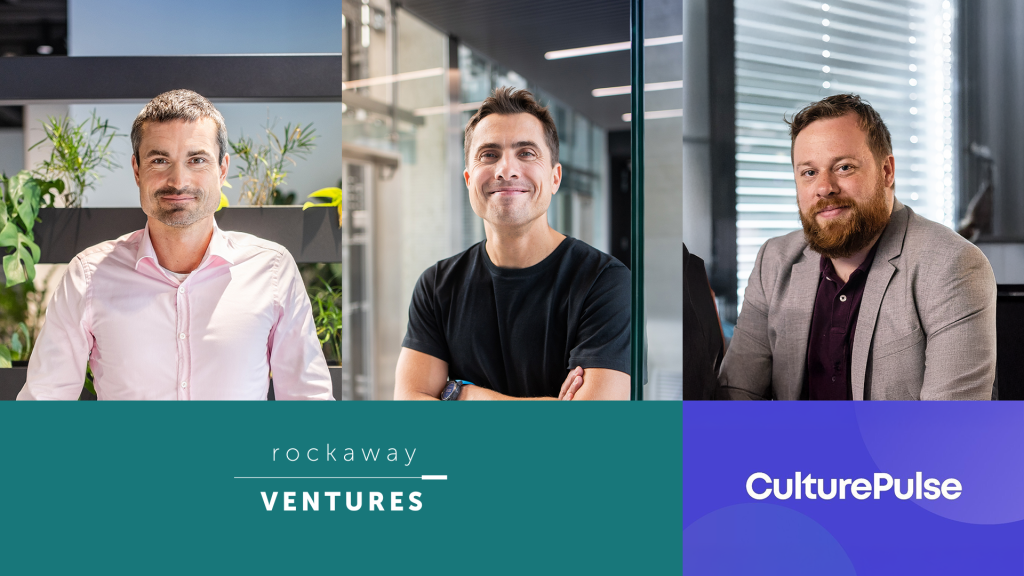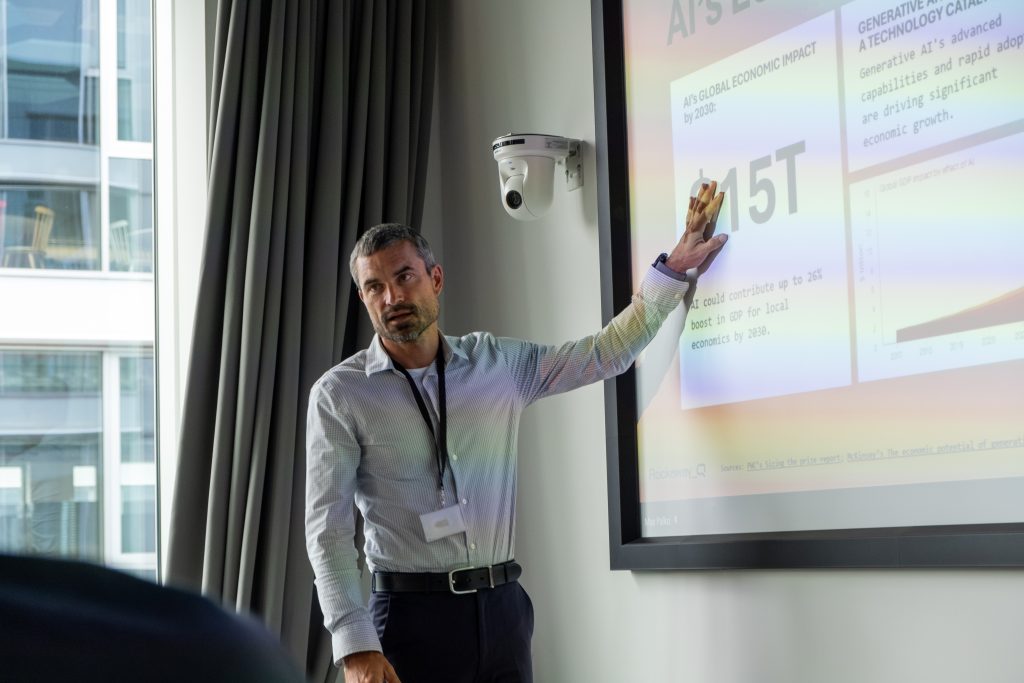All newsInterview with Mergim Cahani, CEO of Gjirafa.com: We’re changing the entire market, and I like that
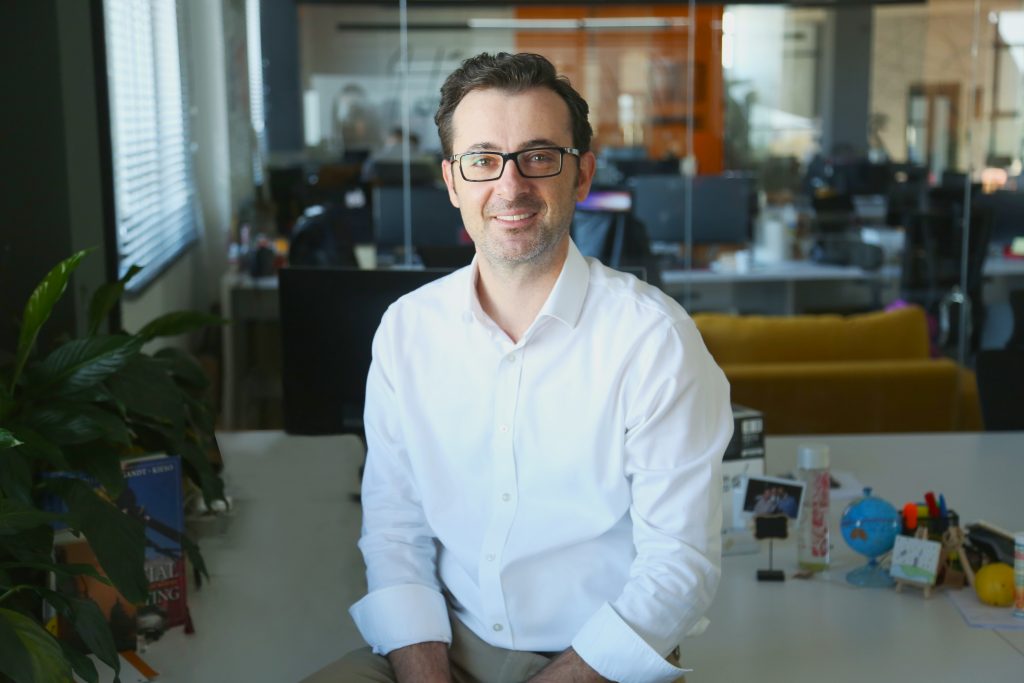
With the help of the Rockaway, Mergim Cahani is developing the internet economy in the Balkans. The current situation, which favours on-line shopping, is one of the reasons why his Gjirafa content and e-commerce platform overtook plans by an entire year.
His career in product development in New York was going well, but one courageous decision eight years ago changed everything. Back then, at the age of twenty-three, Mergim Cahani went home to visit his parents in Kosovo – and never returned. He swapped his life on the other side of the Atlantic for an ambitious plan that sounded a bit crazy at the time.
Cahani wanted to build a local internet player that would cover all needs, from a search engine and on-line shopping to providing media content, and would thus gradually digitalize the Balkan region, which he felt had great potential.
Eight years later his dream is clearly coming true. His Gjirafa content and e-commerce platform is now the leader in Albania, Kosovo, and North Macedonia, receiving over five million visits per month, and partly due to the coronavirus pandemic is growing so quickly that this year it will achieve eight-figure revenues. In euros, of course.
There wouldn’t be anything unusual about this if Mergim Cahani’s story didn’t have a surprisingly prominent Czech footprint. This is because from a business perspective, it all started in Prague, and the Rockaway Capital group, which five years ago invested $ 2 million into Gjirafa and continues to play a key role in its growth, played a major role.
Mergim, what is Gjirafa today? What did it become?
Our nickname had always been the “Balkan Seznam”. That’s no longer the case, and now we’re more of a “Balkan Amazon”. Our strong point is e-commerce, but we also offer original video content – just like Amazon offers the Prime service or products like SaaS or PaaS. Or you can also imagine it as being a combination of Mall.cz and Seznam.cz. In my view, that’s what Gjirafa is today.
How does it occur to someone to build the “Balkan Amazon”?
After finishing school in Kosovo and moving to New York, I took computer science at New York University and St. John’s University. My thesis advisory was professor Torsten Suel, who is considered a global authority in the field and who worked with companies like Yahoo!, Google, or Bell & Ross. Well, and my thesis was on a New Zealand search engine that at the time, like the Czech Seznam engine, was competing successfully with Google.
So you said to yourself that you’d develop something similar in the Balkans too.
Exactly. When I then came home to Kosovo, I said to myself: Something like that’s missing here, so why not try to develop it? I decided practically overnight. I gave notice at the university, sold my car, withdrew all my savings, and moved from the USA back to my native land. This was in 2012 – that’s when it all began.
And how did the Czech aspect come into play?
It was a bit of a coincidence. In my dorm in the USA I had seven roommates who were also my very good friends – and some of them were Czechs and Slovaks. After returning home to the Czech Republic one of them started working on his own project and in that context told me about StartupYard, a Czech startup accelerator. And that I should send them an application. So I did.
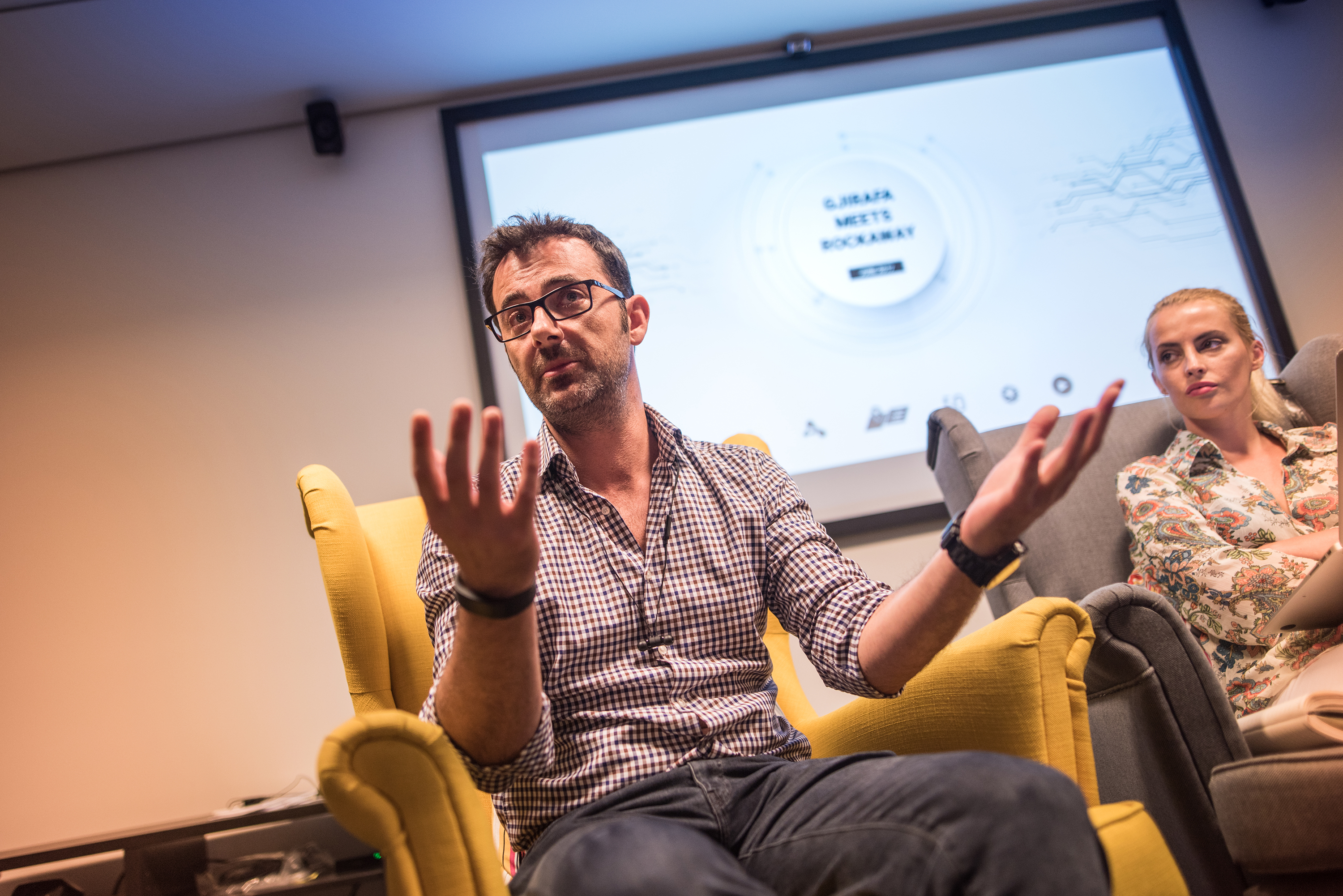
When it came to investors, did it help that the idea you presented to them was similar to what Seznam succeeded in doing on the Czech market?
To be honest, back then I didn’t yet know that Seznam is the market leader in the Czech Republic. But you’re right, it made things a lot easier for me, because Czech investors knew precisely what my plan was. And they believed, like I did, that Gjirafa could and would work in the Balkans and repeat Seznam’s success in the Czech Republic. Everything came together beautifully back then.
Do you recall your first meeting with the Rockaway investment group?
Absolutely precisely. Back then I met with Jakub Havrlant and Dušan Zábrodský at their offices in the Kavčí hory neighbourhood, and if I’m not mistaken within 30 minutes we signed a convertible note. I explained my vision to them, and after a half-hour Jakub offered to invest. He simply believed in it.
How does your collaboration work today?
I’m not exaggerating when I say that Rockaway is like my second home. Dušan (Zábrodský) and I call each other several times a week, and our cooperation is mutual – for example the entire Czech Mall.tv channel is powered by our Gjirafa Video streaming platform. In business in general, and especially when you’re building a startup, good relationships are the most important ingredient. And you can’t build those without mutual trust and a common vision. Once you’ve got good relationships nothing can stop you, and then it’s just a question of time and perseverance.
What’s your goal?
We’re trying to develop an internet economy in the Balkans. Rockaway has the same philosophy in Central Europe: it also wants to integrate fragmented markets, which is why our visions complement each other so nicely. And the internet economy can include an almost endless number of things. Back then, including in cooperation with Rockaway, we chose the most important ones with the greatest potential: e-commerce, online marketing, offline-to-online, maps, and so on. Over time the vision changed and today we’re headed toward building a global media and technology company. It’s a challenge, but an extremely exciting one.
What does that mean in practise?
We’ve got a strong development team, thanks to which we were able to develop an ultra-modern product with customized technology, yet with global potential and one that can be monetized further. By this I for example mean our Gjirafa Video streaming platform, which I already mentioned. We use it for our own media projects, but at the same time we’re capable of selling this product anywhere in the world. And so it logically occurred to us that we could also develop other similar products for media companies. That’s now one of our visions that we’re focusing on.
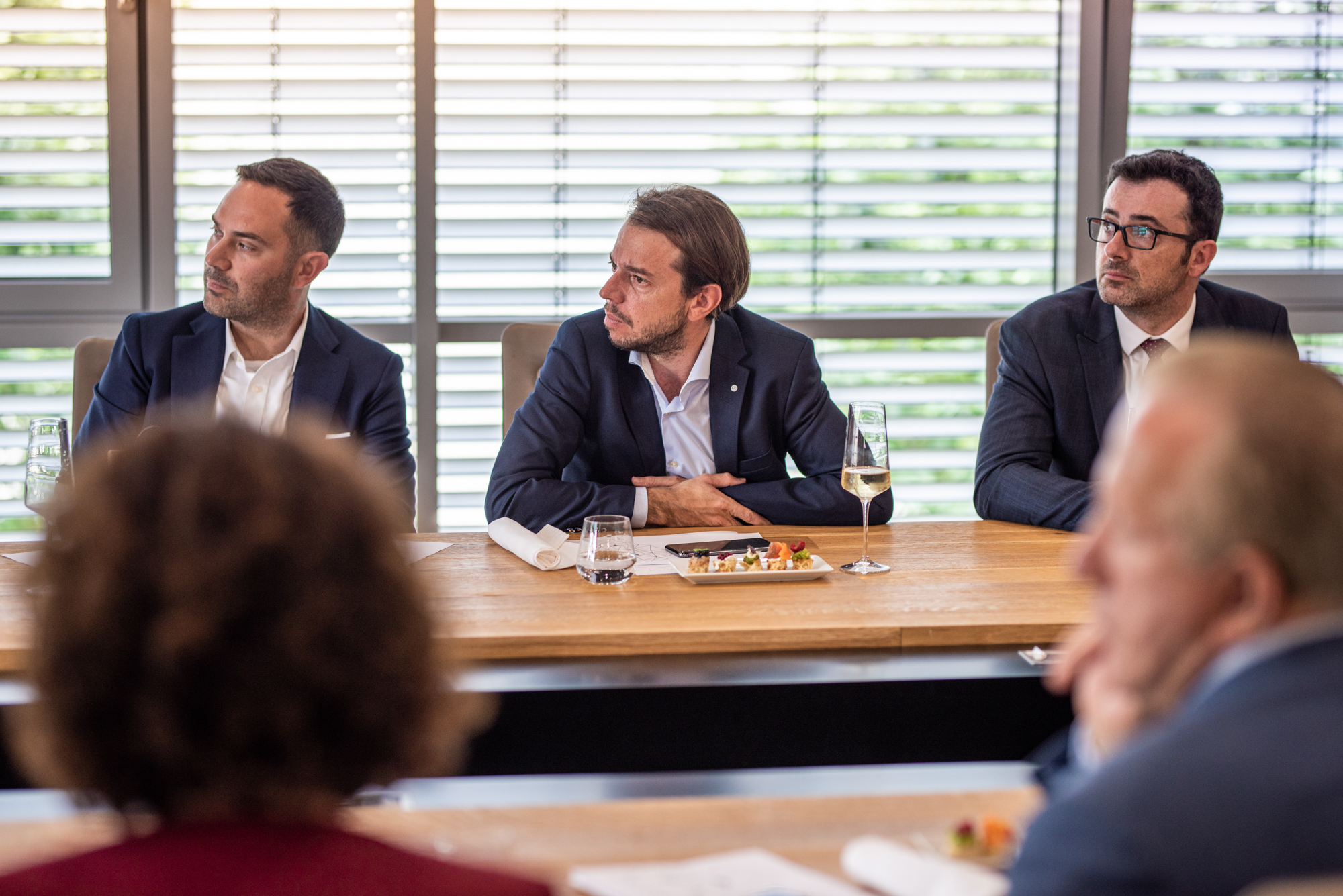
How was your digitalization of the Balkans affected by the coronavirus pandemic?
Covid accelerated a lot of things. Our growth was always double year-over-year and that applies to this year too. But in the last couple of months thousands of new customers have started to shop through us who never shopped online before because now they had no other option – under normal circumstances this might have taken up to three years. And the number of first-time customers is more important to us than doubled revenues.
Could you be more specific?
From the perspective of digitalization our region isn’t as developed as the Czech Republic, where the e-commerce share of retail sales grew thanks to Covid by up to an estimated 15 %. In Kosovo and Albania e-commerce has a share of less than one percent; people here simply have no experience with e-shops. And that’s changing now, our retention rate is 85 to 90 percent, so eight to nine people out of ten buy through us again.
How are your other indicators growing?
Average monthly orders and revenues grew by more than 100 percent over last year, which means that we already experienced the traditional Christmas peak in the fall. And what’s even more important to me is that we’re now much more efficient than in the past, so we’ve already achieved numbers that according to estimates we weren’t supposed to achieve until the end of next year.
What revenues are you expecting this year?
I can’t be specific yet, but it looks like this year we’ll achieves eight-figure revenues (in euros). If I compare that to Heureka, for example, it’s a small number of course, but we’re growing hugely, as is the entire region. Over the past four years we grew by 1500 percent, and next year we’d like to double revenues once again. Yes, it’s a difficult time for all of society and for our team, but we’re doing well and that makes us happy.
What part is the most difficult for you?
We had to change everything really quickly, but because we’ve been doing several things at the same time since the beginning, we’re capable of reacting very flexibly. Advertising and content creation declined significantly during Covid, so we moved employees from there to where they were needed, which means to the supply chain. Directors and cameramen helped out in the warehouse and delivered orders while sound engineers began working in customer support. They’d never done anything like that before, but despite that they pulled it off. I’m proud of them for how they responded to the situation and how they supported our team culture.
You’ve got a lot of influence over the Balkan region. Did you take advantage of this in relation to Covid?
Yes. For example, during the spring we found out that in Kosovo there was a shortage of goods like flour, salt, olive oil, and so on, because the brick-and-mortar shop supply chain had been disrupted. So over the weekend we contacted suppliers and purchased tonnes of supplies that we started selling online, even though we’d never sold groceries before. We didn’t lose money doing it, but we didn’t make any either. We just simply helped the community.
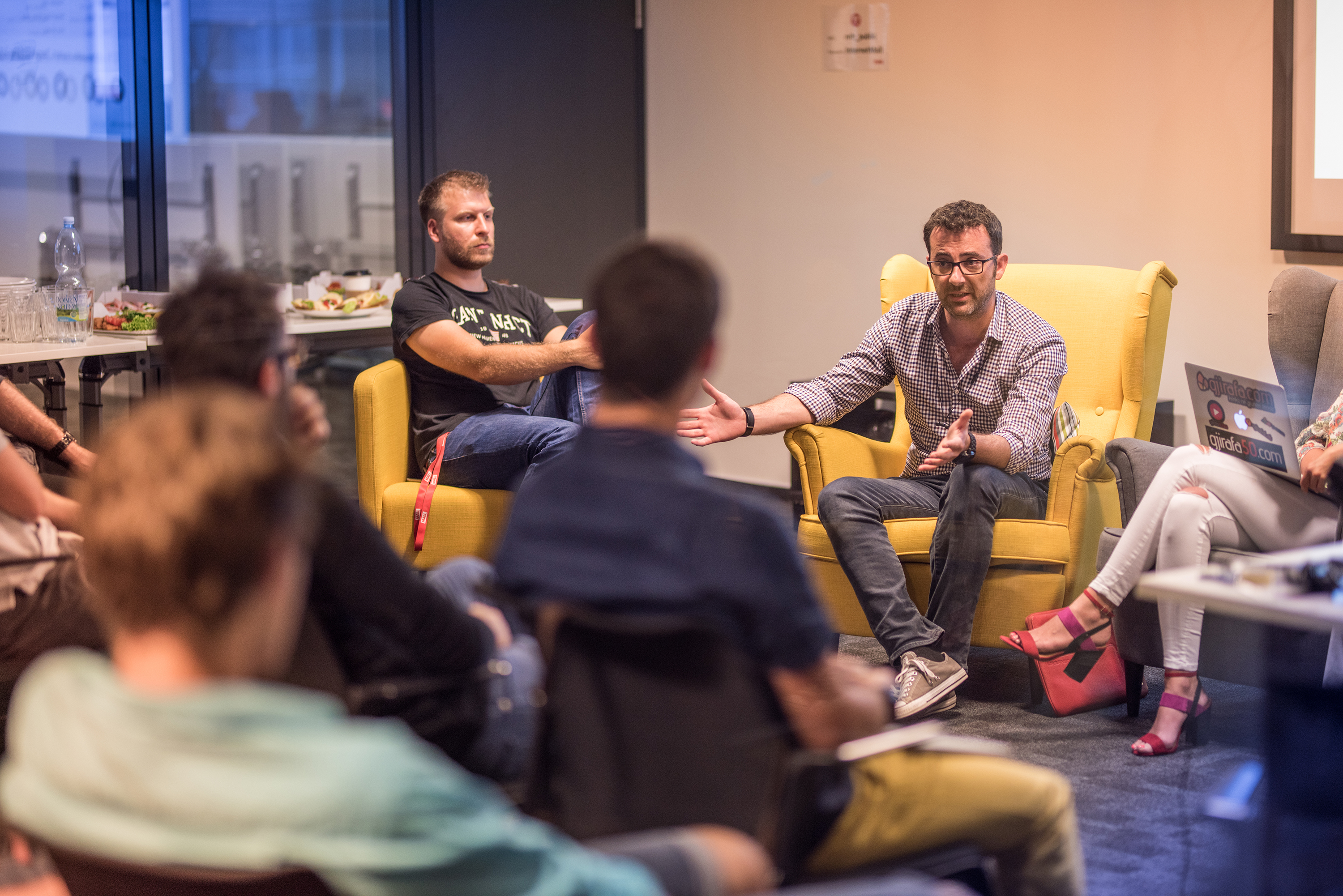
You operate in the Balkans, but you also have millions of users worldwide thanks to Albanians living abroad. What does that mean for you?
The largest Albanian community abroad is in Germany, then in Switzerland, Greece, Italy, France, the USA, and Turkey. About 6 million people all told. We provide services to our countrymen that they’re familiar with from home – for example the same TV shows. And the purchasing power of these expats is huge. For example, in the past, when those living in Zürich or Lausanne wanted to give their family a new TV as a gift, they had to buy it in Switzerland and bring it here.
But today they can buy it through you and spend their money directly in their native land.
Yes. And thanks to that our market is financially much more interesting that it may seem from macro financial indicators. Unfortunately it is hard to come up with a precise number or guess what is being bought with money from abroad. But one thing is certain – it has an enormous impact on the GDP of Kosovo and Albania. It’s estimated that over a billion dollars flows here from abroad annually.
By the way, how is your Balkan duel with Google or Amazon going?
It might look like we’re battling them, but that’s actually not the case. It’s like as if you said that in the Czech Republic Mall.cz is battling Amazon. Yet Alza is a much bigger competitor for Mall.cz. Perhaps Seznam is competing with Google and Facebook in the Czech Republic. We’re a little different, our region isn’t interesting for Amazon, they’re focusing on Germany and other large European countries.
So how do you operate alongside them?
For global players, we’re not a competitor. And that’s what our entire strategy is based on: finding a niche on the market and filling it. But that doesn’t mean we don’t want to be the biggest in the world. I’m not interested in staying in my comfort zone.
So what are you interested in? Conquering all of the Balkans?
We classify our markets as primary and secondary. Kosovo, Albania, or Macedonia will still be primary, but we’re also very strong in Germany, Switzerland, Austria, France, and the USA. Right now we’re taking an intense interest in Montenegro, Serbia, and Bulgaria. We want to try out a couple of pilot projects there to find out what traction they’ll give us. And in time, to offer all services in these countries.
At one time you were saying that you’re not at all motivated by a possible exit. Is that still true?
If we’re talking about a classical founder’s exit, then yes. Both the shareholders and I are much more gratified by the impact our company has on society than any expectation of profit. I’ll give you an example – about a month ago we realized that in the West e-sports is a huge thing, one that’s already much bigger than the music or movie business. Yet our region didn’t have even one decent tournament. So we merged our streaming technology, clients, production, and Balkan e-sports players, and in a few hours created the largest e-sports league in the region, with EUR 25,000 in prize money. This is something I simply enjoy: the ability to change the entire market. I see financial independence and my exit more as the freedom to do things that bring innovation. What else would I do with money from an exit?




